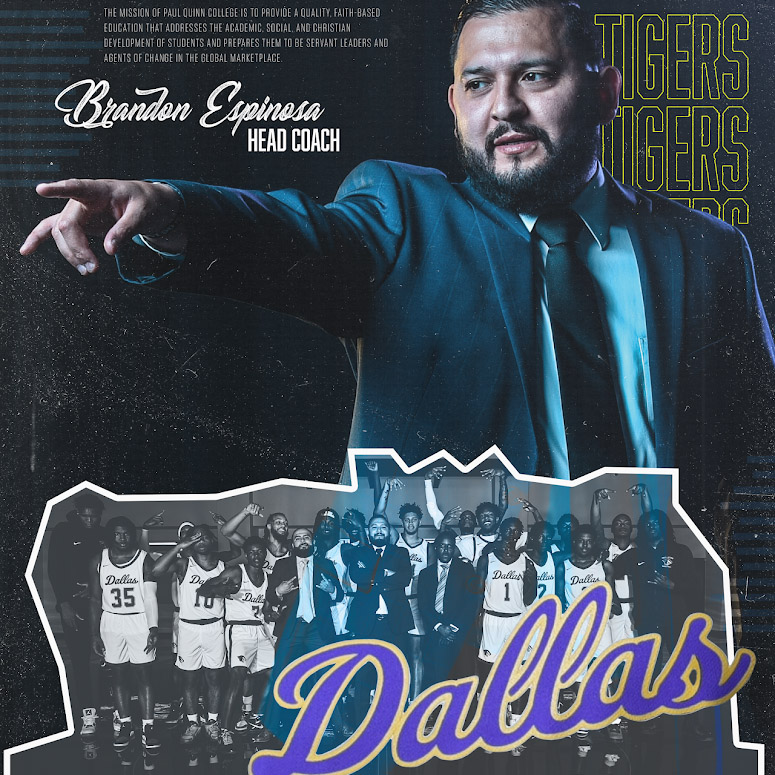
The first step in determining your eligibility is to submit a financial aid application which will require you to provide information such as household size, number in college, student/parent income, and asset information.
Which application do I file?
The FAFSA and TASFA will have a series of dependency questions that will determine your status.
Click here if you have questions
If you have any special circumstances, please contact our office. We will need to collect documentation to verify your situation. We have a checklist for you to reference the documentation that will be required.
If you have an Unusual circumstance, please contact our office. We will need to collect documentation to verify your situation. We have a checklist for you to reference the documentation that will be required. Do include (and may cause any of the aforementioned conditions) abandonment by parents, an abusive family environment that threatens the student’s health or safety, or the student being unable to locate parents.
If you believe you may qualify for this review, submit a Special Circumstances Review Request Form. Please note that reviews do not guarantee that you will have additional aid eligibility. Contact our office for the form and instructions.
Students with a complete financial aid application will receive a financial aid offer outlining expected grant, scholarship, and loan eligibility. Awards are subject to change based on changes in enrollment, eligibility, status and/or funding. Some funding may be awarded on a first-come, first-serve basis. If you need another copy of your financial aid offer, contact our office. You can also view your pending financial aid on your CAMS Student Portal.
Students selected for verification will receive an email with instructions on how to submit their required documentation via DocuSign. All PQC Financial Aid Documents can also be found here.
Texas residents who want to be considered for the Tuition Equalization Grant (TEG) must complete the Texas Residency Questionnaire. Information and requests will be sent by the Office of Financial Aid after a student confirms intent to enroll.
Once we receive your application, our department will process your file and if admitted, provide an estimated award. Eligibility is primarily determined based on your Expected Family Contribution (EFC). You may be offered a combination of grants, scholarships, loans and work-study funds to fund your educational expenses. FAFSA applicants can view their EFC on their Student Aid Report (SAR) on their Federal Student Aid Portal. TASFA applicants will have eligibility determined once documents are received and processed.
Financial aid awards are packaged for full-time enrollment. On Census date each semester your enrollment is locked in. If you are not enrolled full-time on Census date, your aid may be adjusted accordingly.
You can view the schedule of fees to determine direct educational expenses. Keep in mind that these direct costs are before any financial aid has been applied and may vary per student based on their individual situation. If you do not waive comprehensive health insurance, you will have that charge reflected on your student ledger each term.
Please access your CAMS student portal where you can review your individual charges and pending financial aid. If you do not see any financial aid listed, you may have incomplete documents. Review your notifications and contact the Office of Financial Aid if you have questions.
You can also access our Net Price Calculator. Please note that the Net Price Calculator includes estimated educational expenses that you are not directly billed for by Paul Quinn.
We encourage all students to apply for external scholarships. These processes are managed through individual and private scholarship agencies and may have different deadlines and requirements.
If you encounter a scholarship opportunity that you are unsure about, please contact our office and we can help you determine if it appears legitimate. We can also help you organize your application.
Students may be offered as part of your financial aid offer. Federal loans have fixed interest rates and a variety of deferment and flexible repayment options. Private lender loans have terms that vary per lender. We encourage you to learn about federal loan eligibility before pursuing a private loan lender or utilizing a credit card to pay for your educational expenses.
If you accept federal student loans, you are required to complete a Master Promissory Note (MPN) and Entrance Counseling on the Student Aid website or funds will not disburse or post to your account. You can review our Student Loan Acceptance Policy here.
Paul Quinn College is part of the Federal Work College Consortium with opportunities to participate in the on-campus and corporate work programs. All residential, full-time students are required to participate in the Work Program regardless of their financial need. Students in the Work College and Corporate Work Program receive a scholarship that helps offset their direct costs. Students who are not eligible for federal aid may be eligible for institutional work program scholarship opportunities.
On-Campus Work Program students receive a $7,000 per year Work Program Scholarship award. Corporate Work Program students typically receive a scholarship ranging from $13,000-18,000 per year. Participation and scholarship amounts may be different for each student depending on the student’s interests, our campus needs, and the staffing needs of our corporate partners.
Paul Quinn College is the first HBCU to join the Guild Education network. This partnership opens the doors to some of America’s largest and most influential companies, including Walmart, Chipotle, Lowe’s, The Walt Disney Company, and Discover Financial Services, to PQC while providing more than three million workers an opportunity to earn a degree from one of the most unique colleges in the country.
Per program policy, students are required to apply and complete the financial aid process even if they believe they may not qualify for aid or they may not be eligible for the assistance from their employer. If you have a special circumstance as to why you cannot complete the aid process, please contact us.
Grants are a form of financial aid that students do not need to pay back except in the case of revised eligibility. This can include not being enrolled full-time or withdrawing from courses. Gift aid that you may be eligible for may include Federal Pell Grant, Federal FSEOG Grant, Tuition Equalization Grant (TX state aid) or private funding.
We offer a limited number of institutional scholarships. Selection and renewal criteria may vary.
In order to remain eligible for financial aid, you must be in good standing and meet enrollment requirements. This includes:
Satisfactory Academic Progress (SAP) is required by law to formulate standards to measure a student’s progress toward completion of a program of study while receiving financial assistance through federal, state, or institutional student aid programs by applying both qualitative and quantitative measurements to academic work. [34 CFR 668.34].
Students that receive financial assistance at PQC of any type (federal, state, institutional, or outside scholarships/grants) must follow the Satisfactory Academic Progress Policy and demonstrate both qualitative and quantitative satisfactory academic progress toward a degree. At the end of the spring semester of each academic year, the Office of Financial Aid evaluates the qualitative and quantitative academic progress of each student receiving financial assistance. This evaluation determines a student’s eligibility to receive financial assistance in the next academic year.
In determining whether an undergraduate student is making satisfactory academic progress in order to continue to receive financial assistance, the following factors are considered:
Satisfactory Academic Progress Review Timeline
SAP Measures Summary
Qualitative Measure – GPA
Quantitative Measure – Unit Completion
Maximum Timeframe
A student may apply for and if eligible, receive financial aid for attempted credit hours that do not exceed 150 percent of the minimum number of hours required to complete the student’s primary program of study. All hours attempted toward the completion of a program of study will be counted regardless of whether financial aid was received. Credit hours transferred to PQC are counted when calculating the 150 percent maximum. 150% at Paul Quinn is 180 attempted credits. Students approaching 180 attempted credits without degree completion are subject to being placed under SAP suspension. Per PQC institutional policy, students with 145 or more attempted credits will need to complete a SAP appeal.
SAP Appeals
SAP Appeals with Academic Plans
Regaining Eligibility
The Department of Education requires all institutions to follow certain guidelines if a student’s Title IV funds create a credit on the student’s Bursar account. Title IV funds include Federal: Parents PLUS Loans, Stafford Loans, Pell Grant, Perkins Loan, Supplemental Educational Opportunity Grant (SEOG), Work Program, SMART Grant, Academic Competitiveness Grant and Teach Grant. I understand that this authorization will remain in effect throughout the duration of my Paul Quinn student career. A written request to cancel this authorization must be submitted to the Office of Financial Aid by emailing finaid@pqc.edu and it is not retroactive.
The VA Certifying Official in the Office of Financial Aid certifies veteran benefits for veteran students and dependents. In order to utilize your Veteran Benefits, please follow the following steps:
Frequently Asked Questions regarding VA Education Benefits
If you decide to withdraw from the College, we are required to process a withdrawal calculation (Return of Title IV funds) to determine how much of your financial aid you are eligible to keep. Withdrawing from the College may result in you owing back funds that have been posted or issued to you as a refund.
If you would like to request a term withdrawal, please contact your academic advisor. The withdrawal date will be reviewed by Academic Affairs and the Office of Financial Aid will use the dates provided to determine if there are Title IV, state, and/or institutional funds that must be returned. In some cases, students who received a refund may owe funds back.

Coach Keldrick McKinney is a native of Dallas, Texas who enters his third year as the Head Track and Field/Cross Country Coach at Paul Quinn College. After serving one year as Associate Head Coach under the leadership of Coach Maurice West; Coach McKinney was given the opportunity by Paul Quinn’s legendary Athletic Director James “Zip” Summers.
The program has quickly grown from 3 to now 25 student athletes under the leadership of Coach McKinney. In the second year of competing at the Red River Athletic Conference Track and Field Championships, the Paul Quinn Tigers placed two athletes in the Top 10.
Coach McKinney received his bachelor’s in Kinesiology from Prairie View A&M University. After graduation he then opened a training facility where he trained hundreds of athletes. This provided the background and experience for Coach to thrive at the next level. Coach McKinney’s student-athletes not only excel on the track but also in the classroom as well. Coach McKinney’s team maintains over a 3.0 gpa.

Coach Michael Delgado has been coaching at the collegiate level since 2009. He began his coaching career at Howard Payne University, shortly after starting his time there as a collegiate soccer player. He began as a student coach and after graduating with a degree in Spanish Education, became an assistant.
In 2015, Coach Delgado moved back to Dallas to form the Men’s and Women’s Soccer program at Paul Quinn College as the assistant coach and became the head coach of the Women’s team in 2017. From 2015-2021 he was also the Men’s assistant coach.
In 2021, Coach Delgado took over the Men’s program and led the team as the #3 seed (highest in school history) to the USCAA National Championship for the 3rd year in a row, with a 3rd place finish.
Coach Delgado is a Dallas native and graduated from Mesquite Poteet High School as a district MVP & All-State. He holds his Master’s degree from Concordia University in Coaching & Athletic Administration. He resides in the campus neighborhood of Highland Hills and lives daily by his motto, #AlwaysRefuse2Lose.

Brandon Espinosa starts his fourth season as Head Men’s Basketball Coach at Paul Quinn College.
Last season, Coach Espinosa and the Tigers had a historic 19 game turnaround from the previous year going from 7-25 to 26-2 (12-2 RRAC). Coach Espinosa led the 2021-2022 Tigers to the school’s first USCAA Men’s Division I National Championship and the 3rd overall national championship in school history. The Tigers also won the Red River Athletic Conference West (RRAC) regular season title for the first time since joining the conference in 1998. The Tigers finished the 2021-2022 season with the most RRAC wins and highest winning percentage in a season in program history.
The Tigers were the No. 1 seed at USCAA Nationals and had a dominant showing with 3 double digits wins. The championship game featured seven ties and ten lead changes. After trailing by four at half, 38-34, Bryant & Stratton led 67-65 with 6:33 left in the game. Henry Hampton hit a jumper a minute later to give Paul Quinn the lead to highlight a 10-0 run to seal the victory for the Tigers. Ja’Mare Redus led PQC with 18 points while Hampton finished with 17. Spencer McElway added 12, Ja’Mere Redus came off the bench and scored 11, and Steven Tynes chipped in seven points and nine assists.
While the team’s collective efforts were the deciding factor in their success, several outstanding individuals led them both on and off the court. Coach Brandon Espinosa was recognized as the USCAA National Coach of the Year. In addition, senior forward Spencer McElway was selected as a USCAA 1st Team All American, USCAA All Tournament Team and RRAC 2nd Team All Conference. Sophomore forward Trevoin Shaw was voted USCAA 1st Team All American, USCAA All Tournament Team and RRAC 1st Team All Conference. Sophomore guard Ja’mare Redus received USCAA Tournament MVP as well as USCAA 2nd Team All American Honors. Sophomore guard Torron Mingo Jr. earned the USCAA Academic All American award. Junior guard Caleb Thompson received the RRAC Champions of Character award.
During his first season with Paul Quinn, Espinosa led the Tigers to the most conference victories since 2012-2013. In addition, PQC had two players receive RRAC All Conference honors; Spencer McElway was 1st Team All RRAC and Mateo Escheik received 2nd Team All RRAC honors. McElway also joined the schools 1000-point club.
Espinosa also serves as the Director of EYBL and 17U Head Coach for Drive Nation which was founded by former NBA All-Star Jermaine O’Neal. This summer Drive Nation qualified for the 2021 Nike Peach Jam and currently has the most ESPN Top 100 ranked players in the country.
Espinosa has held coaching positions at Bossier Parish Community College, Ranger College and with the Dallas Mavericks NBA G-League affiliate, Texas Legends.
Espinosa is a native of Houston, Texas. He played collegiately for Dallas Christian College, where in 2010 they won the ACCA National Championship. Espinosa earned his bachelor’s degree in Business Administration in 2011.
Paul Quinn did not compete in 2020-2021 due to Covid-19.

Camille Smith is in her first season at Paul Quinn College.
Smith was hired in early March and her most recent position was as an Assistant Coach for the WNBA Dallas Wings.
Prior to coaching, Smith played professionally for 10 seasons internationally and 12 seasons in the WNBA before retiring in 2019. Smith was drafted to the San Antonio Silver Stars in the 2007 WNBA Draft as the 17th Overall pick. Amid the start of the 2008 WNBA season, Smith was selected in the Atlanta Dream dispersal draft before being traded to the Seattle Storm where Smith played and won a championship in 2010! In 2015 Smith was traded to the Connecticut Sun, then to the Phoenix Mercury in 2017, where she finished her career.
Internationally, Smith played on multiple teams in Israel (2015 Israel League Champion) and China. She also played in Turkey, Limassol, Cyrpus, Ragusa, Sicily (2016 Cup Champion), Lebanon (2017 Arab Cup Champion), Montpelier, France, and Venice, Italy (2018 Euro Cup runner-up).
As a former student-athlete at the University of North Carolina at Chapel Hill, Camille graduated with a Bachelor’s Degree in interpersonal communications. A four-time All-ACC selection, she finished her college career with over 1,700 points, 800 rebounds, 250 assists, and 250 steals. As a senior, Camille averaged 13.7 points and 5.9 rebounds per game along with 99 steals to help the Tar Heels reach the Final Four. Camille is ranked among the top 20 all-time scorers at UNC and was named Honorable Mention All-American by the Associated Press following her junior year. She averaged 11.7 points and 5.5 rebounds as a junior. As a sophomore, Camille averaged 13.3 points and 8.0 rebounds in the ACC tournament, including a 23-point game against Duke in the finals. In 2004, she was named ACC Rookie of the Year and was the only freshman selected as a finalist for Kodak All-American honor. Camille became the first Tar Heel to be named first-team All-ACC as a freshman.
In high school, Camille was named Associated Press NC Player of the Year and NC Miss Basketball (Class 3A; 2003). Camille was also awarded State Player of the Year by the Charlotte Observer and NC Gatorade Player of the Year (2002 and 2003). In 2001, Camille shared AP Player of the Year honors at Carver High School and helped her team finish with a 30-0 record and State Championship. Camille is a three-time All-State Selection and averaged 20.2 points and 11.1 rebounds per game during her senior year. She holds the record of 2,168 career points during her high school career, was a McDonald’s High School All-American, and played in the 2002 USA Basketball Youth Development Festival. Camille was also named Piedmont Triad All-Conference, four years in a row, and Piedmont Triad Conference Player of the Year, three years in a row.
Camille Smith & her husband Jeremis Smith are happily married & live in the Historical Stop 6 Community.

Coach Patrick Gonzalez is a native of Fort Worth, Texas. He has a Bachelor of Science in Sociology with emphasis in Criminal Justice from Texas Wesleyan University. He also has a M.Ed. in Sports Administration from Concordia University in Austin, Texas. He has coached volleyball for over thirteen years. He has coached on the high school, club, and collegiate level.
He currently coaches for 360 Volleyball Club in Arlington, Texas. Coach Gonzalez brings a wealth of experience and knowledge to the Paul Quinn College volleyball program. He served as the women’s assistant volleyball coach at Fisk University in Nashville, Tennessee for five seasons. While at Fisk University, Coach Gonzalez served as an Admissions Counselor and Director of International Student Services in the Office of Student Engagement. He has also worked at Howard University in Washington, D.C. and served as the Associate Director of Minority Outreach in the Office of Admissions. He most recently was selected into the Big XII Reach & Teach Volleyball Diversity Program.